From institutional innovation, increasing autonomy, giving incentives to staff to promoting digital transformation, the Resolution opens up a golden opportunity to realize the goal of modern, humane, and integrated education .
Mr. Nguyen Van Dinh - Secretary of Doc Binh Kieu commune ( Dong Thap ): Effectively utilizing Resolution 71 from the 2025 - 2026 school year
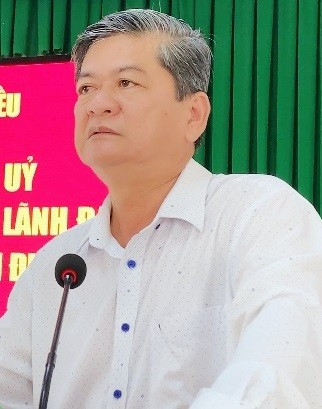
On August 22, 2025, the Politburo issued Resolution No. 71-NQ/TW on breakthroughs in education and training development (Resolution 71). Issued right before the new school year, this is not only a guideline for the education sector nationwide, but also opens up many favorable opportunities for localities, especially rural communes such as Doc Binh Kieu (Dong Thap province), to take advantage of and make breakthroughs.
First of all, Resolution 71 creates a strong resource to promote the development of education and training. Increasing the State budget to spend at least 20% on education, along with the policy of donating textbooks until 2030, increasing teacher allowances to at least 70% to a maximum of 100%, are important conditions to improve the quality of teaching and learning in rural areas. For Doc Binh Kieu commune, this is an opportunity to retain and attract good teachers, support students in difficult circumstances, and gradually narrow the gap between urban and rural areas.
Resolution 71 also focuses on digital transformation of education, modernization of facilities, and building a smart learning environment. This is a potential direction for Doc Binh Kieu commune - where it can take advantage of the "Smart Village" application, digital platforms, and open education models to improve digital capacity for students and teachers.
From the above advantages, Doc Binh Kieu commune has identified a number of priority steps to effectively utilize Resolution 71 right from the 2025 - 2026 school year. Accordingly, review the current status of staff, schools, and investment needs to develop an education project for 2025 - 2030. Specifically, prioritize the construction of new model rural schools with STEM rooms, digital classrooms, and smart libraries. At the same time, organize training courses for teachers on digital transformation, new teaching methods, and soft skills.
Promote the work of encouraging learning and talent. Develop policies to reward, attract and make use of educational talents, especially managers and teachers. Develop studious families, learning clans and learning communities. Establish a digital education and learning promotion fund, mobilize social resources from businesses, alumni and the community. Strengthen propaganda work among the people, raise awareness of the role of education, and encourage parents to accompany the school.
To put the policies into practice, the commune will proactively coordinate with the Department of Education and Training and the Provincial People's Committee to access support programs and investment projects in expertise and teaching facilities. At the same time, promote the spirit of "People know, people discuss, people do", putting people and students at the center of all reforms.
Implementing Resolution 71, the Party Committee of Doc Binh Kieu commune clearly identified: Education is an important driving force for sustainable local development, a core solution to improve people's knowledge, build a learning society and comprehensively develop the locality.
In the 2025-2026 school year, the Party Committee noted that the Commune Education sector urgently and thoroughly grasped the viewpoints, goals and tasks set out in Resolution 71; focusing on improving the quality of comprehensive education in a modern, humane direction, suitable to local realities. Doc Binh Kieu Commune always respects talents, values the cause of cultivating people and commits to accompanying schools in every step.
It is necessary to take care of all students, especially those in difficult circumstances, ensuring that no student drops out of school due to difficult circumstances. Actively review facilities and techniques, build an educational environment that is always safe, green - clean - beautiful. Assign and delegate tasks reasonably, and maximize the capacity of the existing team. Education must always be a sustainable pillar, contributing to building the homeland of Doc Binh Kieu to develop comprehensively in the new period.
Dr. Nguyen Thuy Van - Permanent Vice President of Thanh Do University (Hanoi): Building a strategic plan in line with the major orientations of Resolution 71
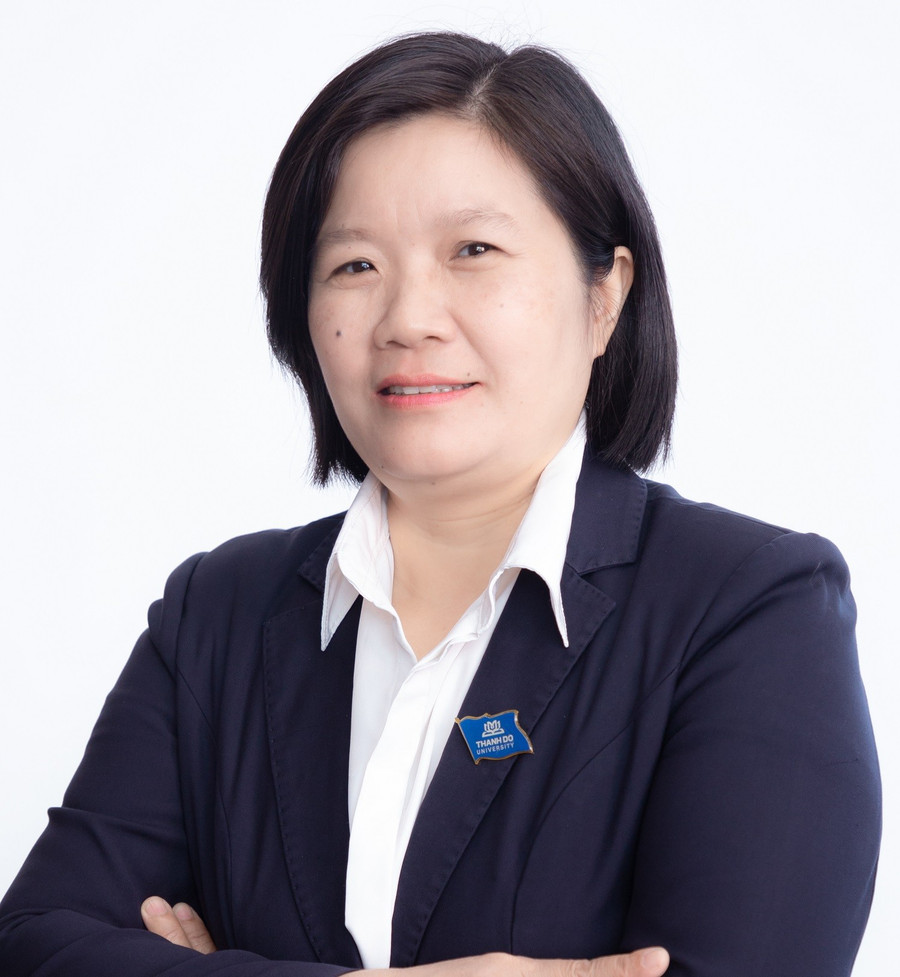
Resolution 71 issued before the new school year has profound political and practical significance for the entire education sector, while meeting the country's socio-economic development requirements in the new period.
The Resolution demonstrates a strategic vision and an important basis for implementing fundamental and comprehensive innovation in education and training in the context of the country moving to a higher stage of development, while meeting the urgent needs of digital transformation, international integration and improving the quality of human resources.
The Resolution establishes many systematic and strategic orientations, including: Institutional innovation, promoting educational autonomy, standardizing the teaching staff, increasing public investment, promoting digital transformation and developing higher education towards research, linkage and integration. This important document has created a clear legal corridor and a favorable environment to realize the orientations, contributing to promoting sustainable development and improving the overall quality of national education.
In educational institutions, Resolution 71 is effective through three main groups of advantages. In terms of institutions, the policy of decentralization and delegation of power creates conditions for educational institutions to enhance their autonomy in administration, organizational structure and professional activities.
Regarding the staff, the policy of increasing the preferential allowance for teachers (at least 70%, especially 100% in difficult areas) contributes to stabilizing and creating motivation for career development. Regarding resources, the commitment to ensure at least 20% of the total budget for education, according to the development investment orientation, helps increase investment in facilities, promote technology application and improve teaching quality.
To realize the spirit of Resolution 71, from the 2025-2026 school year, Thanh Do University will proactively develop an action program to effectively implement policies. First, the school will review and update the development plan for the 2025-2030 period, in which the goals of autonomy, digital transformation and integration will be specified into annual targets. At the same time, review and supplement the comprehensive autonomy project on finance, human resources and training programs, associated with innovation in the school board's operating mechanism and increased accountability in the governance system.
The school identifies the development of the teaching staff as a key task, through training programs to improve digital capacity, integrated pedagogical skills and creative thinking. The application of information technology and artificial intelligence is also promoted in management and teaching, with the orientation of building smart classrooms, digital libraries and online learning platforms suitable for practical conditions. In addition, expanding cooperation with businesses, scientific organizations and international partners to mobilize social resources and improve the practicality and integration ability of training programs.
For Resolution 71 to be effective in the entire sector, especially in the university sector, management agencies need specific support at the macro level. First of all, ministries and sectors need to promptly issue national action plans, assign specific responsibilities and have effective coordination mechanisms between units. The Government should pilot a comprehensive autonomy model for a number of qualified universities to summarize, learn from experience and replicate. At the same time, it is necessary to issue detailed guidelines on budget use, prioritize investment in digital transformation, update training programs and develop staff.
Resolution 71 is not only an important milestone in educational development thinking but also creates a policy corridor for educational institutions to promote innovation, improve quality and restructure operations towards modernity and integration. The entire education system needs to be proactive, closely coordinated and committed to synchronously implementing the Resolution, thereby creating a solid foundation to help Vietnamese education achieve strategic goals on quality, integration and sustainable development.
Mr. Le Van Hoa - Director of the Center for Continuing Education - Information Technology, Foreign Languages of Quang Tri province: Innovating school governance towards increasing autonomy and enhancing accountability
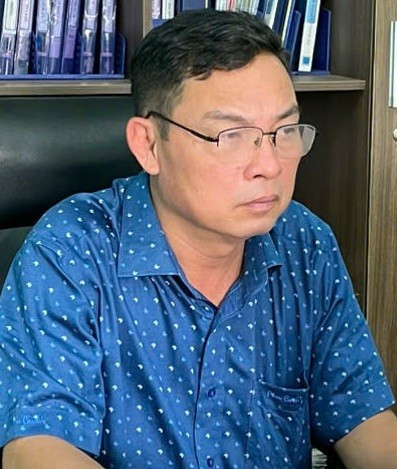
Among the 10 key tasks of the new school year 2025 - 2026 set out by the Ministry of Education and Training, I am most impressed with the task of "Perfecting institutions, improving the effectiveness and efficiency of State management of education; innovating school governance". Our Party and State have correctly affirmed that the "bottleneck" of "bottlenecks" is "institutions". Innovate and create breakthroughs in the work of building laws on education and training; institutionalize assigned viewpoints, goals, tasks and solutions.
Regarding this issue, Resolution 71 also emphasized: "Breakthrough in education and training development must start from innovation in thinking, awareness and institutions". From a management perspective, there have been and are many problems arising in the field of education when operating a two-level local government. But I believe that with the regular and close attention and direction of the Party and the State, in the coming time, these problems will be resolved to be in harmony with the superiority of the new model.
Here, I only mention the specific issue: What do schools need to do to contribute to the task of innovating school governance in the direction of increasing autonomy, enhancing accountability, promoting democracy associated with the role and responsibility of leaders in educational and training institutions; thereby contributing to the good implementation of Resolution 71 in general and the new school year's tasks in particular?
Innovation in school management requires administrators to play the role of creating, leading, and inspiring teachers and students in all educational activities. Thus, administrators must be prestigious, have deep professional knowledge, dare to innovate, and must be passionately involved in educational activities, not sitting in an air-conditioned room, giving orders, and if they cannot manage, they must be banned.
Reality also shows that in any educational institution, if the leader is bold in innovating management thinking, it will create vitality and breakthrough creativity in teachers and students. It can be said that innovating school management is the decisive factor in improving the quality of education.
To successfully carry out the task of innovating school governance in the 2025-2026 school year, I think it is necessary to do well the following tasks:
It is necessary to regularly educate, train, and make the team of managers of educational institutions understand the true nature of school administration to clearly distinguish between “management” and “administration”. Each school manager must be an example of self-study and self-updating new knowledge to take on a leading role in professional activities and be at the forefront of innovation. There needs to be a mechanism for evaluation, appointment, and appropriate treatment to select talented people for management positions in educational institutions.
It is necessary to strongly promote school democracy by enhancing teachers' spirit of daring to think, daring to speak and daring to do; attach importance to educating students' critical thinking; and issue a new Charter of the Parents' Association to promote the role of parents in supervising and criticizing the school's educational activities.
It is necessary to increase the application of information technology, digital transformation and AI in management and teaching activities to promote innovation in the education sector. Investing in and training teachers goes hand in hand with equipping schools with modern facilities, helping teachers to free themselves from heavy, time-consuming tasks in teaching such as setting questions, grading papers, practicing, preparing experiments, and evaluating. Evaluating capacity and implementing professional titles for teachers at the grassroots level goes hand in hand with appropriate teacher remuneration.
In each school, it is necessary to develop regulations aimed at encouraging and attracting students to become the subject of learning activities, active and creative learning. Gradually abolish rigid and outdated regulations to move towards respecting and promoting students' individual abilities in the general context.
Source: https://giaoducthoidai.vn/trien-khai-nhiem-vu-nam-hoc-moi-nghi-quyet-71-thoi-co-vang-de-but-pha-post749166.html













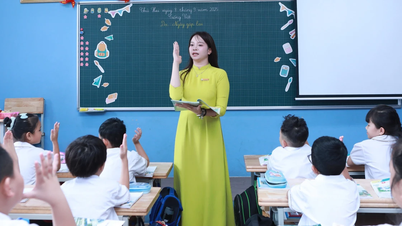
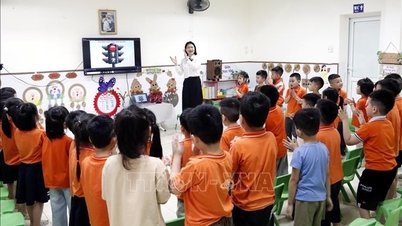
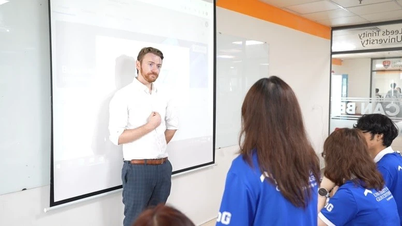


![[Video] Groundbreaking ceremony of inter-level boarding schools in the border areas of Tuyen Quang and Lao Cai](https://vphoto.vietnam.vn/thumb/402x226/vietnam/resource/IMAGE/2025/11/09/1762702287645_lao-cai-ha-giang-6159-jpg.webp)

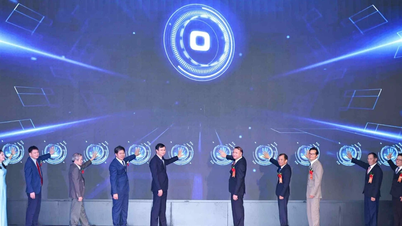
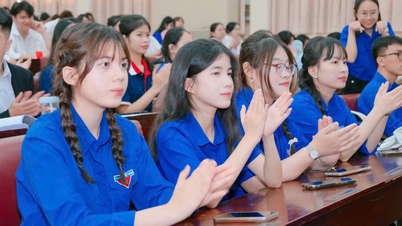
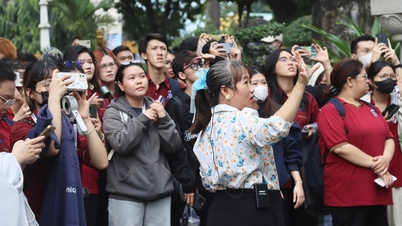







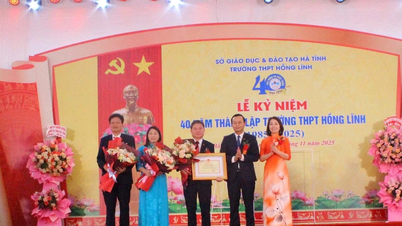
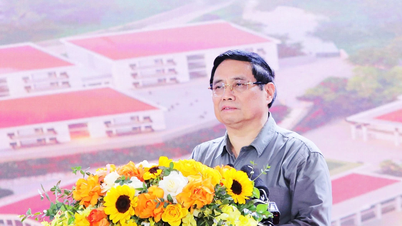
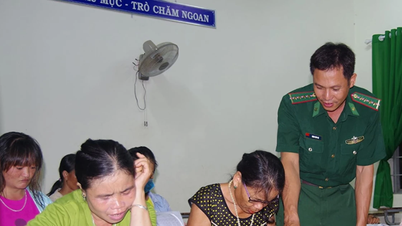
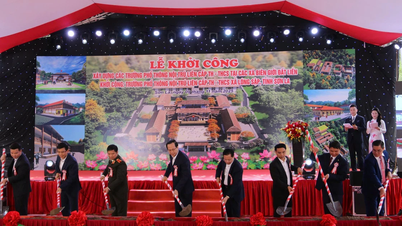







































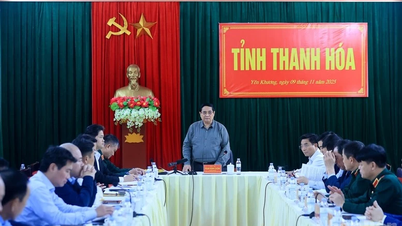



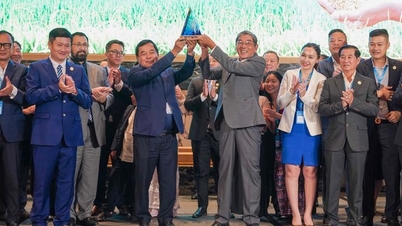



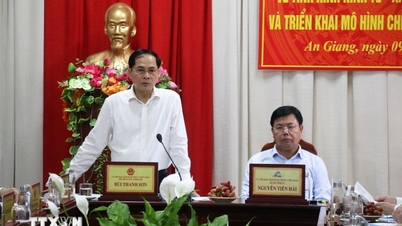





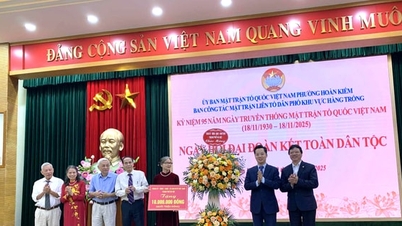



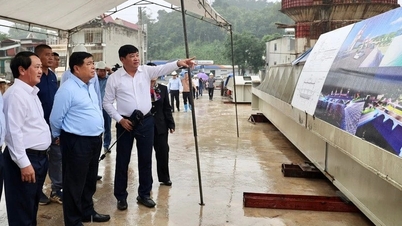















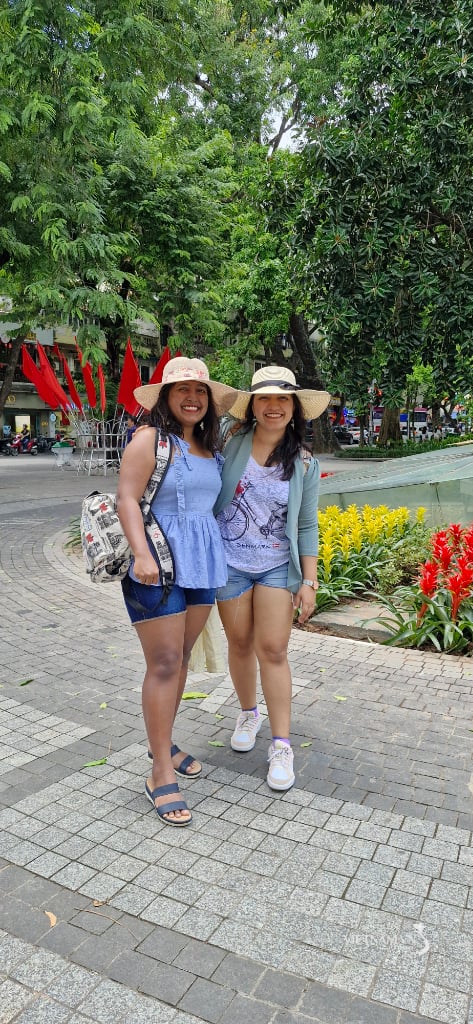

Comment (0)